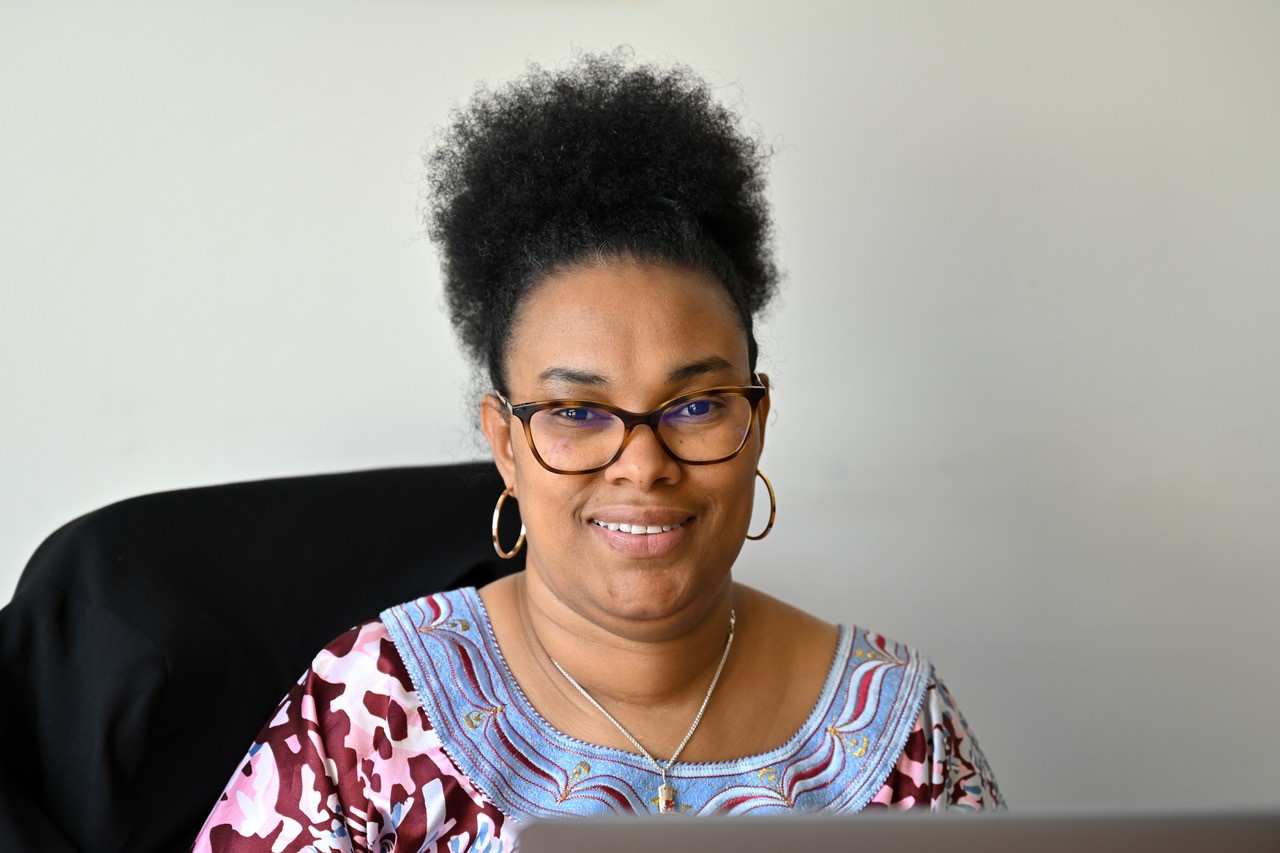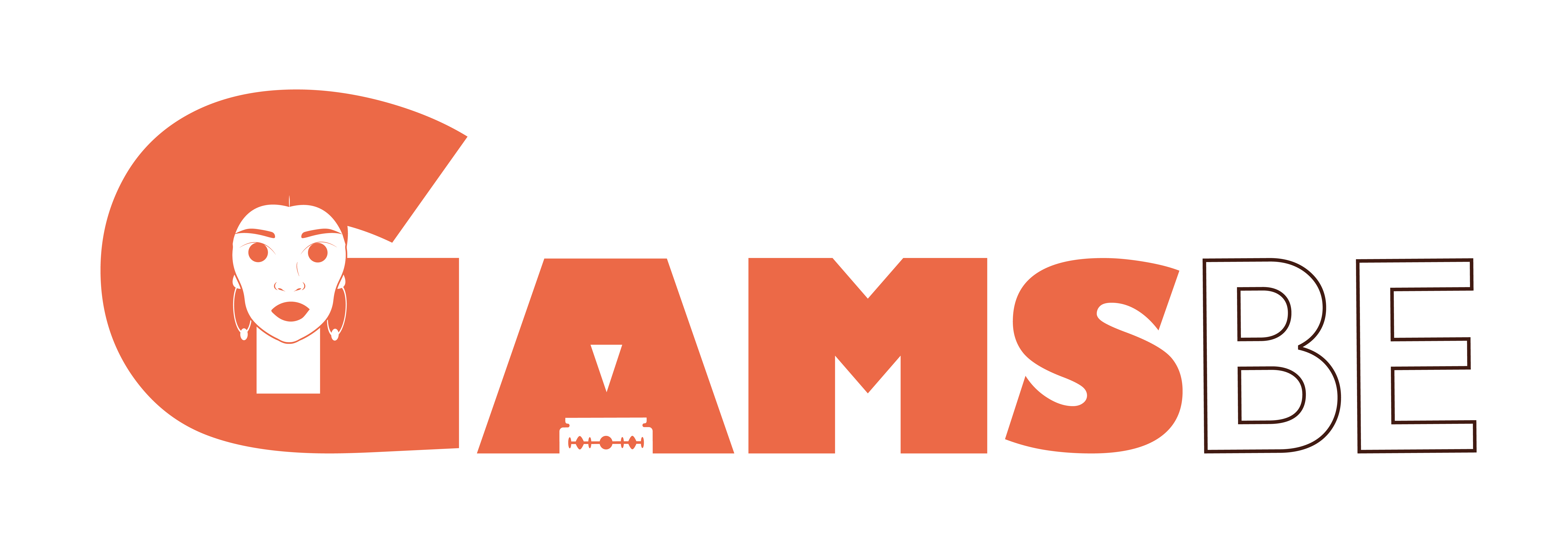INTERVIEW WITH ONE OF ITS MANAGERS, MARIAMA BAH
The community voices program turns 10!
You may have seen her on TV, heard her on the radio, or read her testimony in newspapers. This summer, we interviewed Mariama Bah. A committed woman concerned about female genital mutilation, she has been in charge of the Community Voices team since January 2022. However, her fight has been going on for much longer. Together, we will review these first months of work at GAMS Belgium, reflect on the 10 years of the program’s existence, and revisit some aspects of her personal journey.

What is your connection to GAMS Belgium?
My story with GAMS Belgium is a long one. I first knew about GAMS Belgium as an organization that helped me save my daughters from female genital mutilation and bring them out of my country, Guinea, to protect them. Upon our arrival here in Belgium, the association also greatly assisted us in our integration. I often participated in the activities offered, such as the last Friday of the month gatherings and the March 8th demonstrations, and my daughters participated in activities for children. For months, I would come here every two weeks, and then I had a break because I also had to, as part of my integration journey, attend courses and training sessions. But I always kept in touch with its members, especially Fabienne Richard, the director, who has always been there for me in difficult times. I also think of Carolina and Annalisa at the Brussels office and others, like Halimatou Barry, the former coordinator in Wallonia.
A little over two years ago, I contacted Fabienne to tell her that I wanted to change direction. I studied management in Guinea. I have a master’s degree but I encountered difficulties in finding a job in this field, even though I obtained my equivalence. Fabienne advised me to contact the Brussels Center for Intercultural Action (CBAI), which offers a two-year training program to become a development and intercultural mediation agent.
I inquired, applied, and was accepted. As part of this training, we not only had practical training but also had to do internships. This led me to the Maison des femmes de Molenbeek, which is a service of the “movement for living together: MOVE” association, where I developed a project on life stories with a group of women. This experience was very enriching and also facilitated my arrival at GAMS because it coincided with the completion of the project and the opening of the position of Community Voices coordinator. So, I didn’t hesitate to apply. Three days later, I had my interview. It went well, and here I am.
It’s been quite a journey, starting as someone GAMS accompanied before becoming employed there. How do you perceive this shift in perspectives?
Indeed, even though I had my psychological follow-up elsewhere, I had social support from my now colleague, Carolina. It’s true that it’s not insignificant. When I arrived here as a beneficiary and saw how the team worked, it made me want to work with them. But at that time, there were no prospects. Since job hunting pushed me to reorient myself towards social work, as soon as I could, I didn’t hesitate for a moment to apply. It’s true that the change in status changes a lot of things. I no longer have the same stance.
Before, I was one of those who asked for help, and now I’m the one giving it. The fact that I went through it as a beneficiary means that I understand the requests better and can more easily empathize with them.
Can you explain your role as coordinator?
I am in charge of the “Community Voices” pool, which is one of the cornerstone projects of GAMS. The Community Voices who are part of it are the voices of the program. They are individuals from the affected communities: men and women who have already been sensitized to the issue of FGM and understand the importance and urgency of the fight for its abolition.
My role is to coordinate the training of the peer educators and to equip them to carry out actions and organize awareness and information activities within their communities, whether individually or collectively. We also equip them to provide support to newly arrived individuals affected by FGM, for example, by helping them navigate the city by metro to attend a medical appointment. They can also provide moral support or engage in intercultural mediation.
The Community Voices know their community and understand how communication works within their cultural codes. They help to better contextualize certain situations for professionals and assist the accompanied person in better understanding Belgian structures and institutions and the support offered by professionals.
This program exists since 2012. How did it evolve?
This program has indeed been in existence since 2012. My predecessor, Seydou, who held the position of community voices coordinator since 2015, left GAMS at the end of August 2020, so I had to reorganize everything at the beginning of 2022 upon my arrival. It’s a challenge that I enjoy!
My role is not only to train the relays but also to maintain the relationship between GAMS and the Community Voices. Training is ongoing. This involves conducting quarterly supervisions and listening to feedback and comments to adapt the training based on the difficulties encountered. It is also important to ensure that our relays are constantly equipped and able to handle all types of situations.
Today, the strength of the project lies in being able to offer continuous training and maintain links with volunteers, is that correct?
Yes, because it allows us to more easily address the difficulties encountered and organize events. We want the relays to be able to participate more actively in GAMS activities. They are the bridge between the association and the communities. They perform crucial work to raise awareness and convey the message that FGM must be abolished and fought against.
Initially, volunteers do not always understand the complexity of the consequences resulting from FGM. It is worth noting that each person affected by FGM carries their own suffering, which needs to be acknowledged. This training allows them to realize, for example, that certain problems in their sexual life are linked to FGM. Therefore, thanks to the strength of the collective, it is easier to deconstruct, explain the consequences, provide concrete examples based on experiences rather than hearsay, and thus better convey the danger women are exposed to.
What are some challenges that can be encountered during training?
The main challenge is the awakening of traumatic memories. Even in cases where women have worked on their pains and traumas, training can bring them back, and it can sometimes be difficult to cope with. The psychological and medical aspects of the training help raise awareness of some of our problems related to FGM. And that can be difficult to manage.
Another difficulty is reconnecting with former participants. As I explained, the program has been in existence since 2012. In some cases, the relationship has been severed, and the advent of Covid has also complicated matters.
It’s important to remember that this is not a paid job but actions compensated by a volunteer allowance. Like everyone else, the relays must think about sustaining themselves, and it often happens that once they find employment, they are much less available. For all these reasons, it is important to renew the training every two years to maintain the pool of volunteers and continue the work in the field.
Among the new recruits in 2022, there were 27 people, including 16 relays for Brussels and Wallonia and 11 for Flanders. Were there any pleasant surprises during the training that you would like to share?
At the end of the training, we asked our new recruits to present an awareness project. Some of them submitted projects that we plan to support and accompany. I will provide support to the community relays throughout the process. All volunteers have demonstrated impressive commitment and investment.
Another good news: some relays have been selected as interns for the Network of Coordinated Strategies to Combat FGM and will be called upon for the community diagnosis in Wallonia. There are real prospects for collaboration. Depending on the activities proposed at GAMS, we will see how to involve our new and existing recruits more.
If volunteers were to leave with one piece of information, what would it be?
That’s a question you’d have to ask them. From the feedback I’ve heard, it’s to fight until the end to eradicate this scourge, to actively participate in the fight for the abolition of female genital mutilation.
Your wish for the next cohorts?
My wish is to recruit volunteers who are just as committed and proactive as the 2022 cohort. I also wish to organize more activities within the affected communities in co-construction with the volunteers.
A date for the next edition?
First, we will focus on all the projects proposed by our new volunteers and re-establish relationships with former relays, creating exchanges between different cohorts before proposing a new training. So, we’ll have to wait until the end of 2023 or early 2024 for a new edition, but I can already tell you that the waiting list is long.
